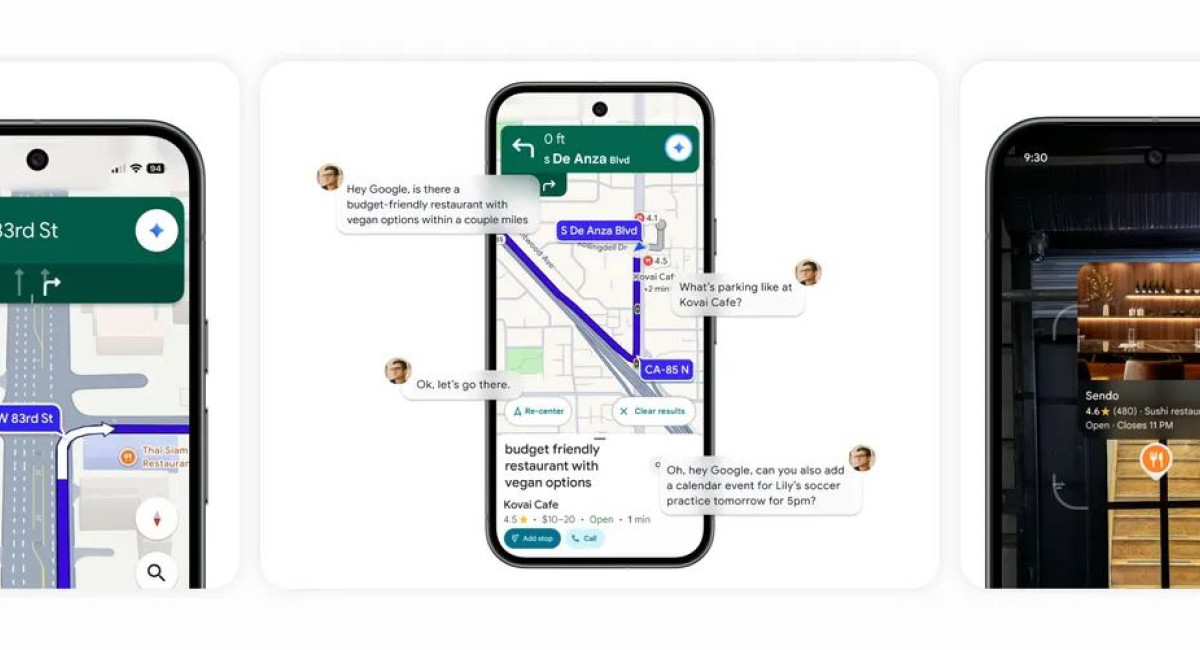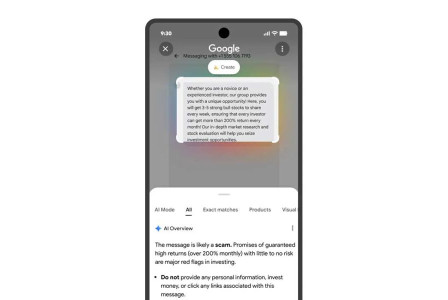SEARCH
Google Maps evolves with Gemini AI

SHARE IT
Google is reimagining how we use Maps, turning it from a simple navigation app into an intelligent, conversational travel companion. The company announced that Gemini, its advanced AI chatbot, will now power a range of new features in Google Maps, introducing a more human-like, intuitive way to plan routes, explore cities, and navigate on the go.
Over the past few years, Google has been steadily integrating artificial intelligence into nearly all its core products. Maps was no exception — last year, it received an upgrade through Immersive View, enabling users to ask questions about local businesses or nearby attractions. Now, with Gemini embedded deeply into Maps’ core functions, Google aims to take navigation far beyond turn-by-turn directions.
“We’ve often envisioned navigating with Maps as being your all-knowing copilot,” said Amanda Moore, Product Director for Google Maps, during a media briefing. “It’s about giving you exactly the information you need when you need it, and taking the stress out of getting from A to B.”
Gemini now allows users to have natural, open-ended conversations directly within Google Maps. Whether you’re driving or walking, you can ask the AI for suggestions, guidance, or information about your surroundings. The system combines real-time geographic data with local insights to deliver responses that feel more personal and relevant than ever before.
For example, a driver might ask Gemini to suggest good Italian restaurants along their route — and then ask to reroute to one of the recommended stops. The assistant can also report traffic incidents or hazards, summarize recent emails or news updates during a commute, and even suggest alternate routes based on changing road conditions. Users can activate Gemini simply by saying “Hey Google” or tapping the small Gemini icon in the top-right corner of the Maps app.
One of the most powerful aspects of this integration is how Gemini connects seamlessly with other Google services. If you ask the AI to remind you about a meeting while driving, it can automatically add that event to your Calendar — all without leaving Maps. “It’s connecting the dots between trusted information from the web, reviews from the Maps community, and all the rich geospatial data that Maps has,” explained Vishal Dutta, Group Product Manager for Google Maps. “Then Gemini brings it all together through its summarization skills, giving you a clear, actionable answer in seconds.”
Dutta compared the experience to having “a friend who’s a local expert sitting in the passenger seat.” That description captures Google’s broader ambition — to make technology feel more like a companion than a tool.
Google is also improving how Maps provides spoken directions. Instead of relying purely on distance-based cues like “turn left in 200 meters,” Gemini now uses recognizable visual landmarks to make navigation feel more natural. Directions might include phrases such as “turn right after the gas station” or “keep left past the coffee shop.” This approach draws on Gemini’s massive processing ability, analyzing billions of Street View images and cross-referencing them with a live database of over 250 million mapped locations worldwide.
Another major addition is Proactive Traffic Alerts, designed for everyday commutes or regular routes where users might not normally open Maps. Gemini will quietly monitor your typical paths in the background and send notifications about upcoming disruptions — accidents, road closures, or construction — early enough to help you reroute before you hit a slowdown. The goal is to make driving smoother and more predictable, especially for those who rely on Maps daily.
Visual search is also getting a boost. By using Google Lens within Maps, users can point their phone cameras at nearby landmarks or storefronts to learn more about them. Powered by Gemini’s natural language understanding, the AI can explain what the building is, share its history, list business details, or even suggest things to do nearby — all through conversational interaction.
Of course, there are valid concerns about accuracy. AI models are known to “hallucinate,” or generate false information, especially when interpreting ambiguous data. However, Google insists that Gemini’s integration with Maps will avoid such pitfalls. “We’ve really worked to ground this in our place information,” said Moore. “When you ask about stops or businesses along your route, it’s using verified, real-world data — so there shouldn’t be any hallucinations about where to go.”
Importantly, all these new features will be free for signed-in users and will roll out gradually across Android and iOS devices, as well as in vehicles that come with Google built-in.
MORE NEWS FOR YOU

 Help & Support
Help & Support 

